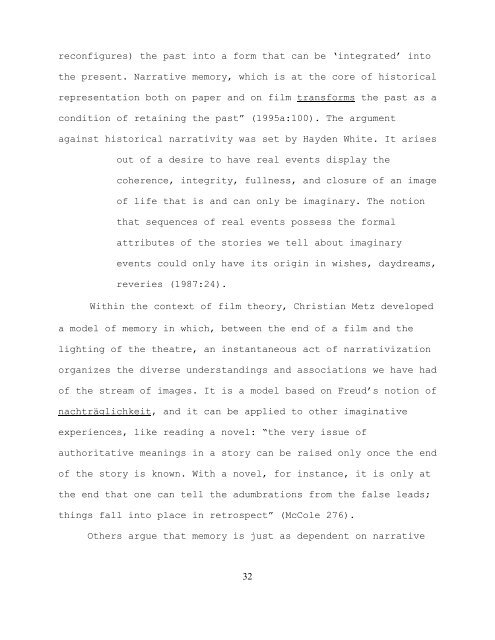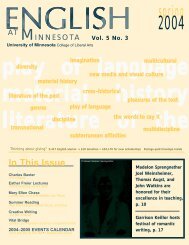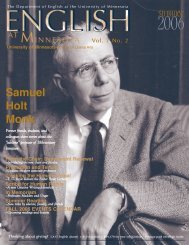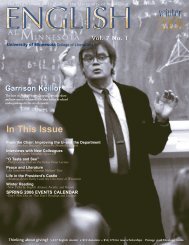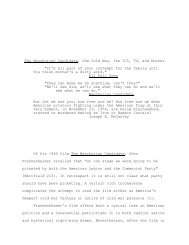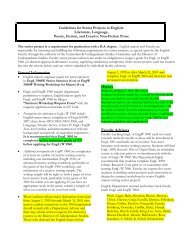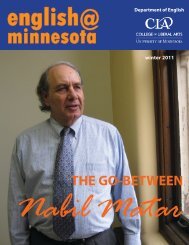Screen Memory - Department of English
Screen Memory - Department of English
Screen Memory - Department of English
You also want an ePaper? Increase the reach of your titles
YUMPU automatically turns print PDFs into web optimized ePapers that Google loves.
econfigures) the past into a form that can be ‘integrated’ into<br />
the present. Narrative memory, which is at the core <strong>of</strong> historical<br />
representation both on paper and on film transforms the past as a<br />
condition <strong>of</strong> retaining the past” (1995a:100). The argument<br />
against historical narrativity was set by Hayden White. It arises<br />
out <strong>of</strong> a desire to have real events display the<br />
coherence, integrity, fullness, and closure <strong>of</strong> an image<br />
<strong>of</strong> life that is and can only be imaginary. The notion<br />
that sequences <strong>of</strong> real events possess the formal<br />
attributes <strong>of</strong> the stories we tell about imaginary<br />
events could only have its origin in wishes, daydreams,<br />
reveries (1987:24).<br />
Within the context <strong>of</strong> film theory, Christian Metz developed<br />
a model <strong>of</strong> memory in which, between the end <strong>of</strong> a film and the<br />
lighting <strong>of</strong> the theatre, an instantaneous act <strong>of</strong> narrativization<br />
organizes the diverse understandings and associations we have had<br />
<strong>of</strong> the stream <strong>of</strong> images. It is a model based on Freud’s notion <strong>of</strong><br />
nachträglichkeit, and it can be applied to other imaginative<br />
experiences, like reading a novel: “the very issue <strong>of</strong><br />
authoritative meanings in a story can be raised only once the end<br />
<strong>of</strong> the story is known. With a novel, for instance, it is only at<br />
the end that one can tell the adumbrations from the false leads;<br />
things fall into place in retrospect” (McCole 276).<br />
Others argue that memory is just as dependent on narrative<br />
32


